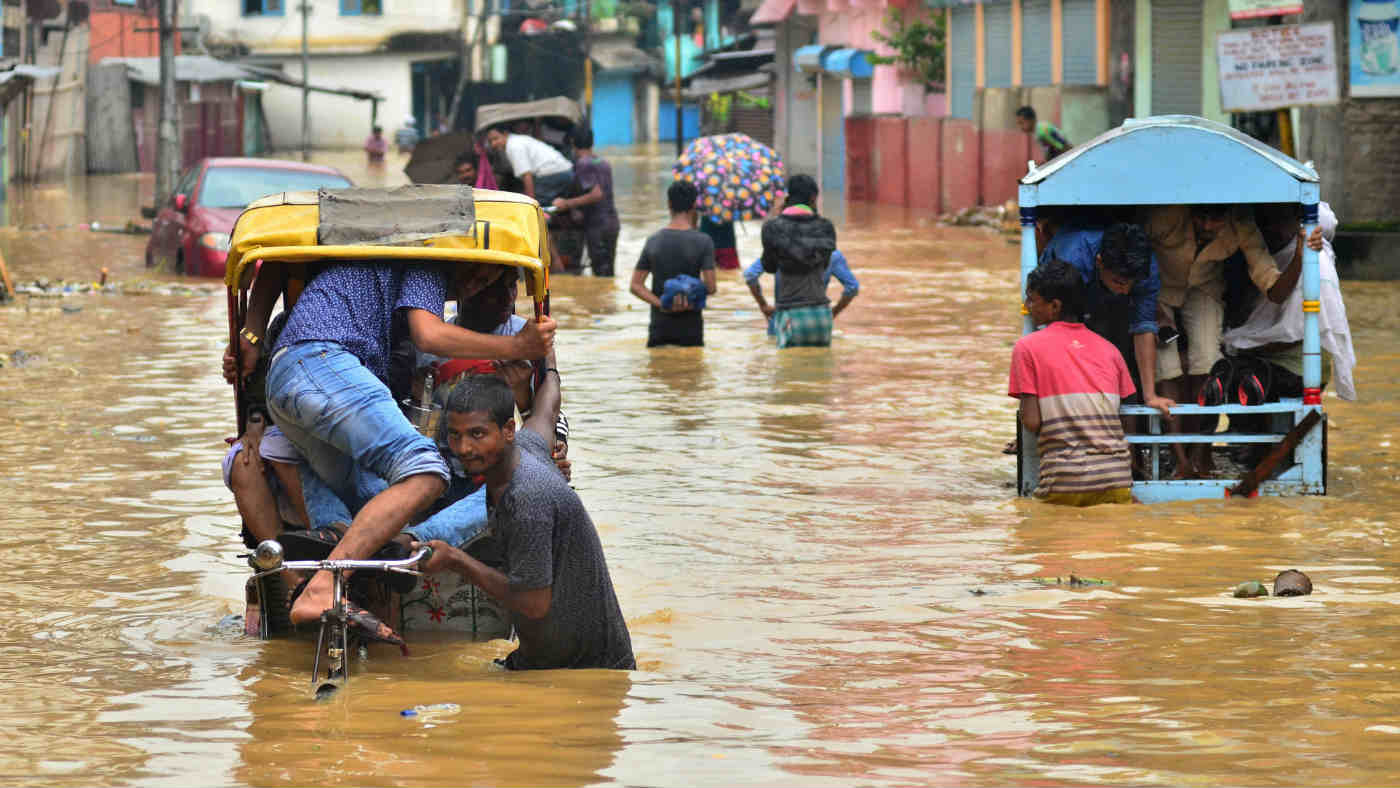Climate change raises Asia sea levels to dangerous limits
Tens of millions at risk of flooding on banks of Ganges and Yangtse

A free daily email with the biggest news stories of the day – and the best features from TheWeek.com
You are now subscribed
Your newsletter sign-up was successful
Climate change and increasing urbanisation could have a devastating effect on south-east Asia in the near future, with a study by the Asian Development Bank predicting that rising sea levels and severe flooding could claim the lives of as many as 137 million people.
Over the next 30 years, "it is projected that heavy rainfall events will be increasing... in Asia, by about 20 per cent for sure", Dewi Kirono, a climate scientist at Australia's Commonwealth Scientific and Industrial Research Organisation, told CNN. Southern Asia is already one of the wettest regions in the world, receiving an average of at least 40ins of rainfall a year.
This could have a devastating effect on the 500 million people who live on or around the region's three biggest river deltas, the Ganges, Brahmaputra and Yangtze, which are most at risk from rising sea levels and flash flooding.
The Week
Escape your echo chamber. Get the facts behind the news, plus analysis from multiple perspectives.

Sign up for The Week's Free Newsletters
From our morning news briefing to a weekly Good News Newsletter, get the best of The Week delivered directly to your inbox.
From our morning news briefing to a weekly Good News Newsletter, get the best of The Week delivered directly to your inbox.
Bangladesh, India, and southern China have accounted for the vast majority of flood-related deaths worldwide since 1950, according to Belgium's Universite Catholique de Louvain. This year alone, cyclone Mora displaced an estimated half a million people in the Kutupalang settlement in Bangladesh and more than 12 million have been forced to flee their homes in southern China.
According to the Xinhua state news agency, flooding in Jiangxi province has so far caused $430m (£328m) worth of damage, while 53,000 homes have been destroyed in neighbouring Hunan province in recent months.
"Mumbai, Shanghai, Hanoi, Beijing, Phnom Penh - every major city in Asia has had a major flooding event [in the last five years] so there's no doubt about it that the situation is getting worse," Kirono added.
As well as the immediate threat to life and property, rising seas levels will also have longer-term consequences. The Ganges, Brahmaputra and Yangtze collectively support about 14 per cent of the world's population and any land lost to flooding could lead to massive food shortages and famine.
A free daily email with the biggest news stories of the day – and the best features from TheWeek.com
The causes
Increased flash-flooding resulting from climate change is one risk factor, but rapid urbanisation is another. "Sprawling, rapid urban growth across South Asia, built to accommodate the millions of rural residents moving to cities" has contributed to the problem, says CNN.
The World Bank estimates that more than 56 per cent of China's population now lives in cities, many of them in super-cities around the mouth of the Yangtze. That's up from just 17 per cent in the 1970s. Urban residents also now account for a third of India's total population.